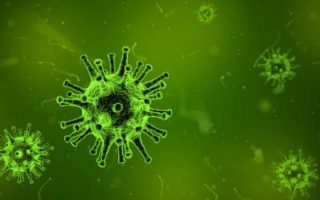
As scientists continue to study the SARS-CoV-2 virus responsible for the global COVID-19 pandemic, new information is constantly coming to light about factors that affect its spread. One of the most surprising recent findings is that the rate of COVID-19 spread is linked to long-term air pollution exposure. Here’s what you should know about the link between COVID-19 and air pollution.
How Does Air Pollution Affect COVID-19?
The outcomes of COVID-19 and air pollution appear to be linked in two distinct ways. To begin with, it appears that the disease spreads faster among populations exposed to high levels of fine particulate matter in the air over long periods of time. A recent study published in the journal Science of the Total Environment concluded that this form of air pollution was associated with an increase in the basic reproductive number (R0) of COVID-19, which reflects the number of new cases each existing case of the disease can be expected to produce. Specifically, the researchers found that an increase of just one microgram per cubic meter of fine particulate matter increased R0 by 0.25. In other words, populations living in heavily polluted areas were likely to experience considerably faster spread of the disease than those living in places with cleaner air.
In addition to increasing the rate of spread, air pollution has also been linked to higher mortality rates from COVID-19. Due to the already known negative effects of particulate air pollution on cardiovascular health, it appears that long-term exposure increases the likelihood of COVID-19 leading to severe symptoms or even death. Recent findings concluded that up to 15 percent of global COVID-19 fatalities could be linked to long-term air pollution exposure.
With these new findings in mind, it’s clear that COVID-19 and air pollution are a dangerous mix. If you live in a heavily polluted area, your risks of contracting and experiencing severe symptoms from the disease are both increased. As the pandemic continues, it’s becoming increasingly clear that responses to it must take into account the effects of poor air quality.
Can an Air Purifier Help?
Protecting yourself from air pollution can be quite difficult. Unfortunately, you can’t do much to change how polluted the air in your area is. You can, however, use an air purifier to reduce your exposure to air pollution at home. A purifier with a combination of HEPA and carbon filtration is best for this application, as it can target multiple components commonly found in air pollution.
With regards to the link between COVID-19 and air pollution, an air purifier can also serve the purpose of helping to capture viral particles in the air. As we’ve detailed several times since initially reporting on the use of air purifiers for COVID-19 at the beginning of the pandemic, HEPA air filters are capable of capturing airborne particles the size of the SARS-CoV-2 virus.
Some of our top recommended air purifiers for COVID-19 protection that also feature the carbon filtration needed to capture gaseous components of air pollution include the Amaircare 3000 HEPA, Airpura P600 and AllerAir AirMedic Pro 5 Exec UV. These units all offer the combination of HEPA and carbon filters that is needed to protect against both air pollution and airborne viruses.
Needless to say, using an air purifier won’t eliminate the risks of COVID-19 or air pollution. It is, however, an extra layer of protection that may help keep you safer as the pandemic continues to surge.
Have questions about which air purifier is right for you? We’re here to help! Feel free to contact us with your questions, and we’ll be happy to provide you with answers and product recommendations based on your unique needs.